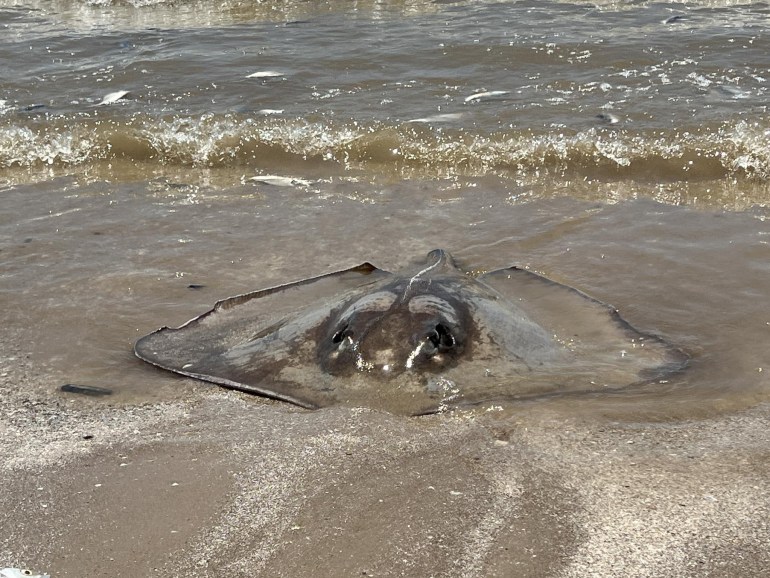Officials said the species most impacted by this fish kill was the Gulf menhaden, and that the dead fish started washing ashore on Friday.
Thousands of fish washed ashore along the Texas Gulf Coast due to “a low dissolved oxygen event” in warm water, US officials have said.
Quintana Beach County Park officials said on Sunday that the species most impacted by this fish kill was the Gulf menhaden, adding that the pedestrian beach is mostly cleared with the “exception of a spattering of fish that the machinery couldn’t get”.
“Fish kills like this are common in the summer when temperatures increase. If there isn’t enough oxygen in the water, fish can’t breathe,” the Park officials said in a Facebook statement, adding that the “perfect storm” led to depleted levels of oxygen inshore.
Warm water holds much less oxygen than cold water, and fish that find themselves in warm water could end up in big trouble.
“When the water temperature rises above 21 degrees Celsius (70 degrees Fahrenheit), it becomes hard for menhaden to receive enough oxygen to survive,” the statement said.
“Shallow waters warm more quickly than deeper, so if a school of menhaden are trapped in the shallows as the water begins to heat, the fish will start to suffer from hypoxia.”

Calm seas and cloudy skies
Calm seas and cloudy skies also contributed to the lack of oxygen, authorities said.
Waves add oxygen to the water, as air meets the water through wind and waves “and subsequent vertical mixing into the ocean interior”. During this time, there was minimal wave action.
A second way to create oxygen is via photosynthesis by microscopic phytoplankton or macroalgae; this is driven by sunlight, and cloudy skies reduce the ability of organisms to produce oxygen through photosynthesis.
“Sunlight-driven photosynthesis causes increased dissolved oxygen during daylight hours,” Lerrin Johnson, spokesperson of Texas Parks and Wildlife’s Kills and Spills Team Region 3, told CNN network.
“Photosynthesis stops at night and may slow down on cloudy days, but plants and animals in the water continue to respire and consume free oxygen, decreasing the dissolved oxygen concentration,” she was quoted as saying.
The dead fish started washing ashore early on Friday morning until Sunday.
On Friday, the National Weather Service recorded a high of 33C (92F) in Brazoria County.
“It appears the last of the fish have washed in,” Quintana Beach County Park said on Sunday. “The most recent are deteriorated to the point of being shredded skeletons,” it added.

#Dead #fish #wash #Texas #Gulf #Coast #due #oxygen #News





